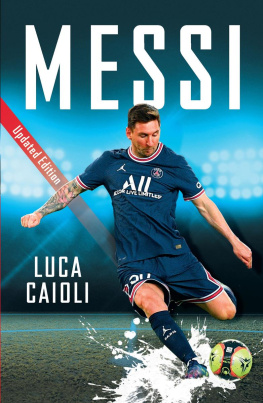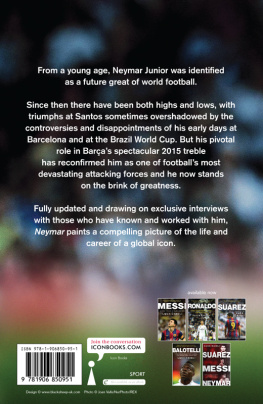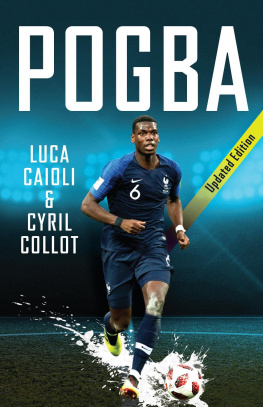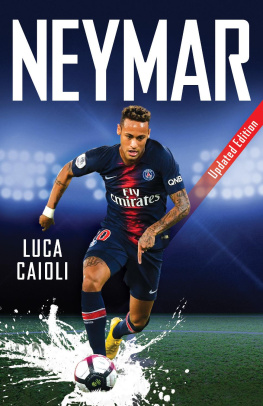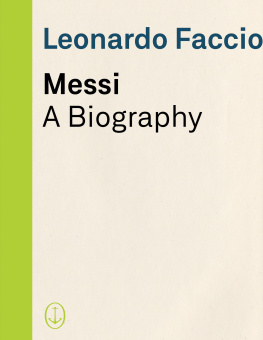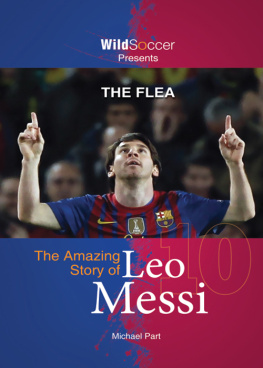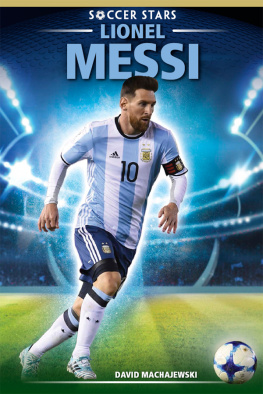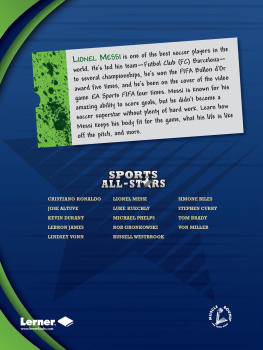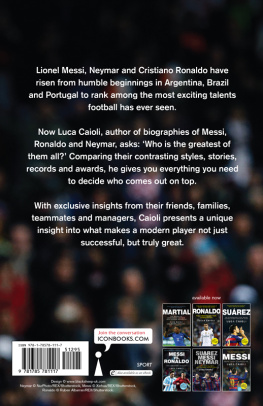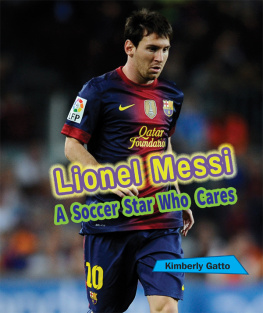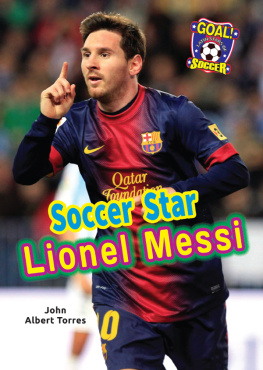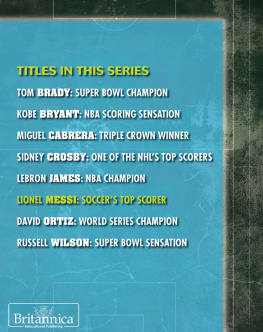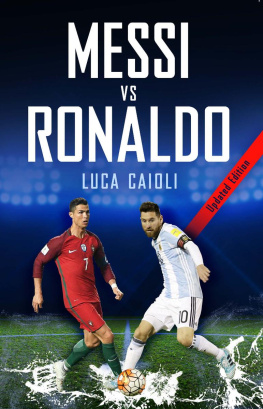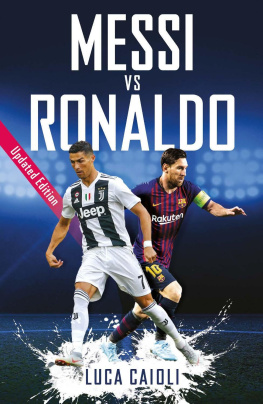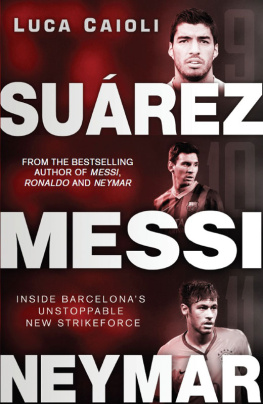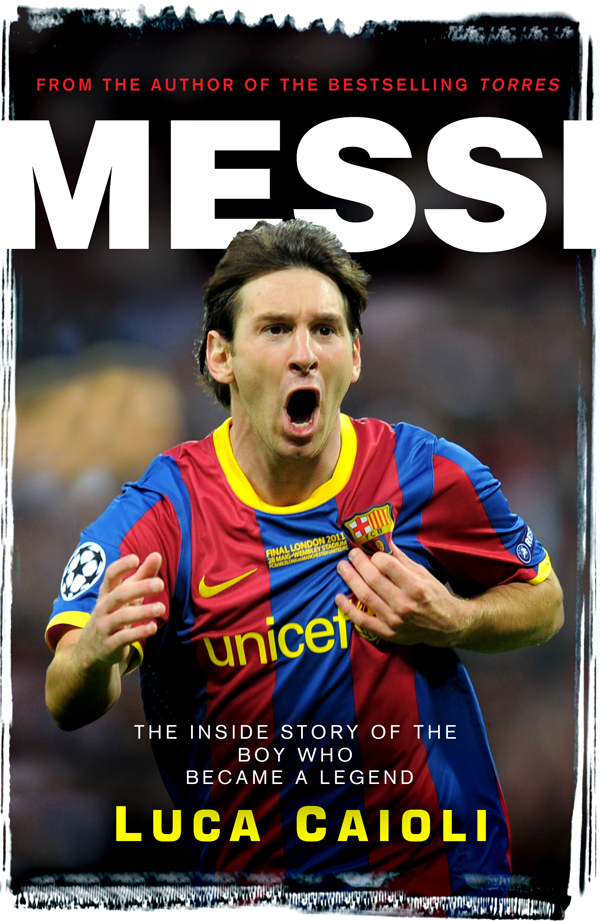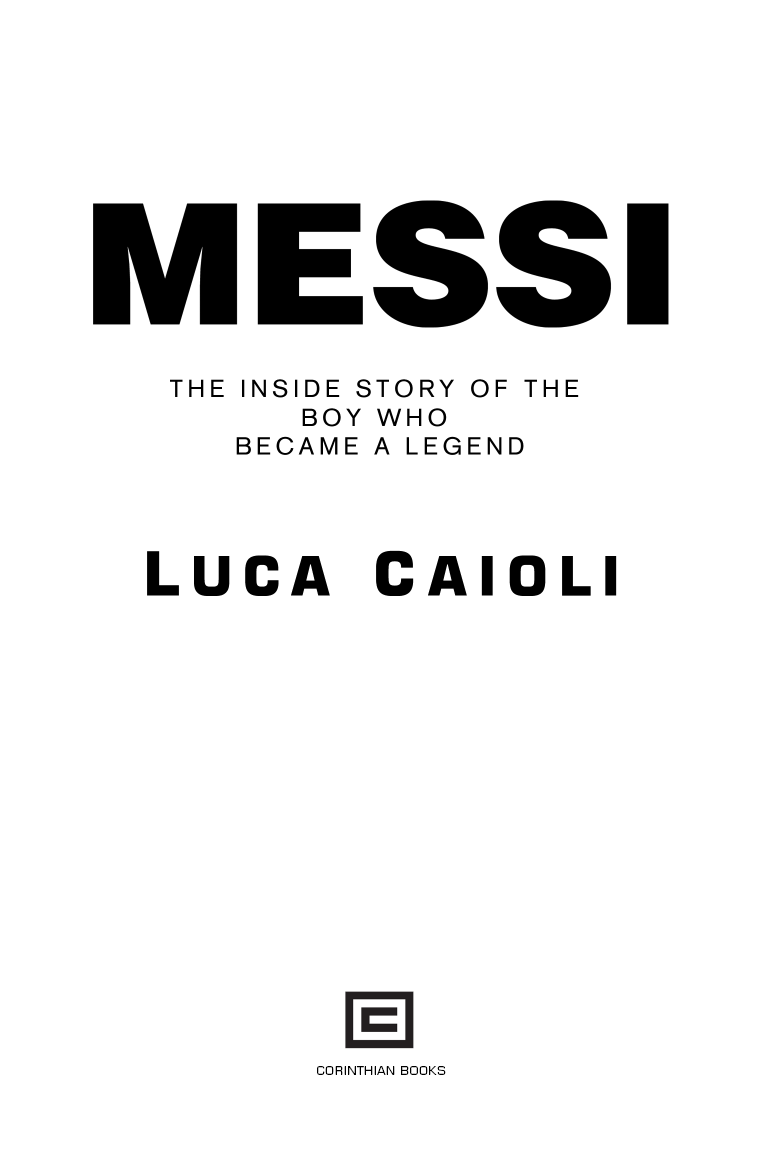An earlier printed edition of this book was published in 2008 by 10 Books and Columna, Spain and in 2009 by Planeta, Argentina
First published in the UK in 2012 by
Corinthian Books, an imprint of
Icon Books Ltd, Omnibus Business Centre,
3941 North Road, London N7 9DP
email:
www.iconbooks.co.uk
This electronic edition published in the UK in 2012 by
Corinthian Books, an imprint of Icon Books Ltd
ISBN: 978-1-90685-040-1 (ePub format)
ISBN: 978-1-90685-041-8 (Adobe ebook format)
Sold in the UK, Europe, South Africa and Asia
by Faber & Faber Ltd, Bloomsbury House,
7477 Great Russell Street, London WC1B 3DA or their agents
Distributed in the UK, Europe, South Africa and Asia
by TBS Ltd, TBS Distribution Centre, Colchester Road
Frating Green, Colchester CO7 7DW
Published in Australia in 2012
by Allen & Unwin Pty Ltd,
PO Box 8500, 83 Alexander Street,
Crows Nest, NSW 2065
Text copyright 2008, 2010, 2012 Luca Caioli
Translation copyright 2010, 2012 Sheli Rodney
The author has asserted his moral rights.
No part of this book may be reproduced in any form, or by any means, without prior permission in writing from the publisher.
Typeset in New Baskerville by Marie Doherty
Contents
Chapter 1
Rosario
Conversation with Celia and Marcela Cuccittini
I buy the rump or a piece from the hindquarter. Theyre cuts of beef Ive also seen in Barcelona but I dont know what theyre called. I put a bit of salt on each piece, dip them in egg and coat them in breadcrumbs. I fry them until theyre nice and golden-brown and I put them in an oven dish. I slice the onion finely and fry it over. When the onion turns white, I add chopped tomatoes, a little water, salt, oregano and a pinch of sugar. And I leave it on the heat for around twenty minutes. Once the sauce is done, I pour it on top of each piece of beef, making sure theyre well covered. I take some cream cheese or hard cheese out of the fridge and lay it on top of the beef in thin slices. I leave them in the oven until the cheese melts. All thats left to do is fry the potatoes as a side dish and the milanesa a la napolitana [schnitzel napolitana] is ready to serve.
With the passion and experience of a good cook, Celia describes her son Lionel Messis favourite dish.
When I go to Barcelona I have to make it two or three times a week. And with at least three medium-sized cuts of beef. I tousle his hair and tell him: My schnitzel napolitana and my mate [traditional Argentine tea] are what make you score so many goals. Lionel has simple gastronomic tastes: schnitzel, but not made with ham or horsemeat; chicken with a sauce made of pepper, onions, tomatoes and oregano. He doesnt care much for elaborate dishes, like the ones his brother Rodrigo makes, but then, as is well known, Rodrigo is a chef and his dream is to open his own restaurant one day. It is natural for him to experiment and try new recipes, although his younger brother doesnt always appreciate them. Does he have a sweet tooth? Yes, Leo loves chocolates and alfajores [traditional caramel-filled biscuits a national delicacy]; when we go to Spain we have to take boxes and boxes so that he always has a good supply. She tells the story about how, when he was little, when a coach promised him an alfajor for every goal he scored, he netted eight in a single match. Some feast.
Over a cup of coffee in La Tienda bar on San Martn de Rosario avenue, the mother of Baras number 10 talks with great gusto about her world-famous son. Black hair, a delicate smile and certain facial features that remind one of Leo (although she laughs and says that he resembles his father completely), Celia Mara Cuccittini Oliveira de Messi has a soft, gentle voice. While she is speaking, she often glances at her sister Marcela, seated opposite. The youngest of the Cuccittini family, Marcela is also a mother of footballers: Maximiliano plays for Olimpia in Paraguay; Emanuel plays in Spain for Girona FC; and Bruno attends the Renato Cesarini football school, which counts players such as Fernando Redondo and Santiago Solari among its alumni. Marcela Cuccittini de Biancucchi is Leos godmother and his favourite aunt. When he returns to Rosario, he loves spending time at her house. We have to go and meet him or call him to see how he is, but, of course, my sister spoils him, says Celia. And then theres Emanuel, theyre inseparable. From a very young age they were continually playing ball. There were five boys: my three, Matas, Rodrigo and Leo, and my sisters two, Maximiliano and Emanuel. On Sundays, when we would go to my mothers house, they all used to go out into the street to play before lunch, recalls Celia. They were wild games, of football or foot-tennis and often Leo would end up returning to the house crying because he had lost or because the older ones had cheated.
Just the other day, Maxi was reminding me about those games, adds Marcela, and he was telling me that when they all meet back here in Rosario he wants to play Messis against Biancucchis, just like old times.
And the memories bring us to the grandmother, Celia: her delicious food, the pastries, the Sunday family reunions and the passion for football. She was the one who accompanied the kids to their training sessions. She was the one who insisted that they let my Lionel play even though he wasnt old enough, even though he was the youngest and he was small. Because, says Celia, hes always been small. They were afraid hed get trodden on, that hed get hurt, but she wasnt, she insisted: Pass it to Lionel, pass it to the little guy, hes the one who scores goals. She was the one who convinced us to buy him football boots. Its a shame she cant see him today. She died when Leo was ten years old, but who knows if, from up there, she sees what he has become and is happy for that grandson of hers whom she loved so much.
But how did Leo begin playing football? Who taught him? Where do all his many skills come from is it a question of genes? I dont know, from his father, from his brothers, from his cousins. We have always loved football in our family. I am also a fan. My idol? Maradona. His career, his goals, I followed them with much passion. He was a barbarian on the pitch. When I met him, I told him: I hope one day my son will be a great footballer and you can train him. And look whats happened look how far hes come
A pause in the story: the mobile phone on the table starts to ring. Celia excuses herself and moves away to answer it. Meanwhile, Marcela returns to the topic of young Leo. He was incredible, before he was even five years old he could control the ball like nobody else. He loved it, he never stopped. He hit every shot against the front gate, so much so that often the neighbours would ask him to cool it a bit.
Celia has finished her phone call, she sits down and nods in agreement. The worst punishment we could threaten him with was: youre not going to practice today. No mummy, please, Ill be really good, dont worry, I promise let me go and play, he begged and insisted until he convinced me. Leo wasnt a temperamental child and he wasnt lazy either, hes always been a good boy, quiet and shy, just as he is today.
Really? Yes, really. He doesnt take any notice of the fame. When he comes back to Rosario he always wants to come and wander around this area, along San Martn avenue, with his cousin Emanuel. When we tell him its not possible, that here the people of his hometown will get hysterical when they see him and not let him go two steps, he gets upset. He doesnt understand it, he gets annoyed. In Barcelona, he goes to the Corte Ingls department store in his trainers and sports gear. Ronaldinho often used to ruffle his hair and ask him if he was crazy going out dressed like that. He hasnt taken any notice of who he is. Thats why being famous, signing autographs or taking photos with fans doesnt bother him. Some evenings, when he comes home after a long time and when I go to see him, I lay by his side on the bed. We chat, I ruffle his hair, I tell him things, and I say, half joking: What all the girls wouldnt give to be next to you like this. He makes a weird face and says: Dont be silly mum.


